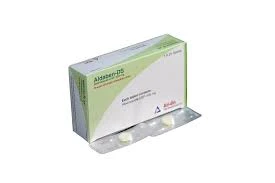- Afrikaans
- Albanian
- Amharic
- Arabic
- Armenian
- Azerbaijani
- Basque
- Belarusian
- Bengali
- Bosnian
- Bulgarian
- Catalan
- Cebuano
- Corsican
- Croatian
- Czech
- Danish
- Dutch
- English
- Esperanto
- Estonian
- Finnish
- French
- Frisian
- Galician
- Georgian
- German
- Greek
- Gujarati
- Haitian Creole
- hausa
- hawaiian
- Hebrew
- Hindi
- Miao
- Hungarian
- Icelandic
- igbo
- Indonesian
- irish
- Italian
- Japanese
- Javanese
- Kannada
- kazakh
- Khmer
- Rwandese
- Korean
- Kurdish
- Kyrgyz
- Lao
- Latin
- Latvian
- Lithuanian
- Luxembourgish
- Macedonian
- Malgashi
- Malay
- Malayalam
- Maltese
- Maori
- Marathi
- Mongolian
- Myanmar
- Nepali
- Norwegian
- Norwegian
- Occitan
- Pashto
- Persian
- Polish
- Portuguese
- Punjabi
- Romanian
- Russian
- Samoan
- Scottish Gaelic
- Serbian
- Sesotho
- Shona
- Sindhi
- Sinhala
- Slovak
- Slovenian
- Somali
- Spanish
- Sundanese
- Swahili
- Swedish
- Tagalog
- Tajik
- Tamil
- Tatar
- Telugu
- Thai
- Turkish
- Turkmen
- Ukrainian
- Urdu
- Uighur
- Uzbek
- Vietnamese
- Welsh
- Bantu
- Yiddish
- Yoruba
- Zulu
Des . 18, 2024 05:01 Back to list
Ivermectin 1% Injectable Solution for Goat Health and Parasite Management
Ivermectin 1% Injectable for Goats A Comprehensive Overview
Ivermectin is a widely utilized antiparasitic medication in veterinary medicine, particularly in the livestock industry. Among its various formulations, the 1% injectable solution stands out for its efficacy in treating a range of parasitic infections in goats. This article aims to provide an in-depth look at Ivermectin 1% injectable specifically for goat health, covering its uses, dosage, administration, safety, and precautions.
Uses of Ivermectin in Goats
Ivermectin is effective against a broad spectrum of internal and external parasites. In goats, it is primarily used to control nematodes (roundworms), arachnids (such as mites), and insects (like lice and screwworms). It also provides some efficacy against certain protozoa. The medication works by disrupting the nervous system and muscle function of these parasites, leading to their paralysis and eventual death. For goat herders, especially those who run a large number of animals, the ability to manage parasitic loads efficiently is crucial to maintaining overall herd health and productivity.
Dosage and Administration
When using Ivermectin 1% injectable for goats, it is essential to follow the recommended dosage guidelines to ensure both effectiveness and safety. Typically, the dosage is calculated based on the animal's weight. A common recommendation is 0.2 mg of Ivermectin per kilogram of body weight, which translates to approximately 1 mL of the solution per 50 kg of body weight. It is recommended to administer the injection subcutaneously (under the skin) for optimal absorption.
Before administration, it is crucial to check the formulation's expiry date and ensure that the vial is intact. Proper injection technique should be practiced to minimize stress for the animal and prevent complications, such as abscess formation at the injection site.
ivermectin 1 injectable for goats

Safety and Precautions
Ivermectin is generally considered safe for use in goats when administered at the recommended dosages. However, it is crucial to consider individual animal health and any underlying conditions that may affect drug metabolism. Pregnant and lactating goats should be evaluated before treatment, as there may be specific recommendations regarding the use of this medication during these stages.
Furthermore, Ivermectin is toxic to certain breeds of dogs, particularly collies and collie mixes. Therefore, it is imperative to ensure that these dogs are kept away from treated goats to prevent accidental poisoning.
Environmental Considerations
When using Ivermectin, it is important to be aware of its environmental impact. Residues from treated animals can contaminate pastures, leading to potential harm to non-target species. Forage and feed should be managed appropriately, and goats should not graze in treated areas until the drug has been metabolized. It is essential to adhere to withdrawal times, which indicate how long after treatment the animals should not be slaughtered or their milk used for human consumption.
Conclusion
Ivermectin 1% injectable is a valuable tool for managing parasitic infections in goats, supporting the health and productivity of livestock. However, its use must be accompanied by proper dosing, administration techniques, and safety precautions. By integrating this medication into a comprehensive herd management plan, goat farmers can optimize their flock's health and minimize the risks associated with parasitic diseases. As veterinary practices continue to evolve, Ivermectin remains a cornerstone of effective parasite management in the goat industry, helping farmers achieve sustainable and healthy livestock production.
-
Guide to Oxytetracycline Injection
NewsMar.27,2025
-
Guide to Colistin Sulphate
NewsMar.27,2025
-
Gentamicin Sulfate: Uses, Price, And Key Information
NewsMar.27,2025
-
Enrofloxacin Injection: Uses, Price, And Supplier Information
NewsMar.27,2025
-
Dexamethasone Sodium Phosphate Injection: Uses, Price, And Key Information
NewsMar.27,2025
-
Albendazole Tablet: Uses, Dosage, Cost, And Key Information
NewsMar.27,2025













